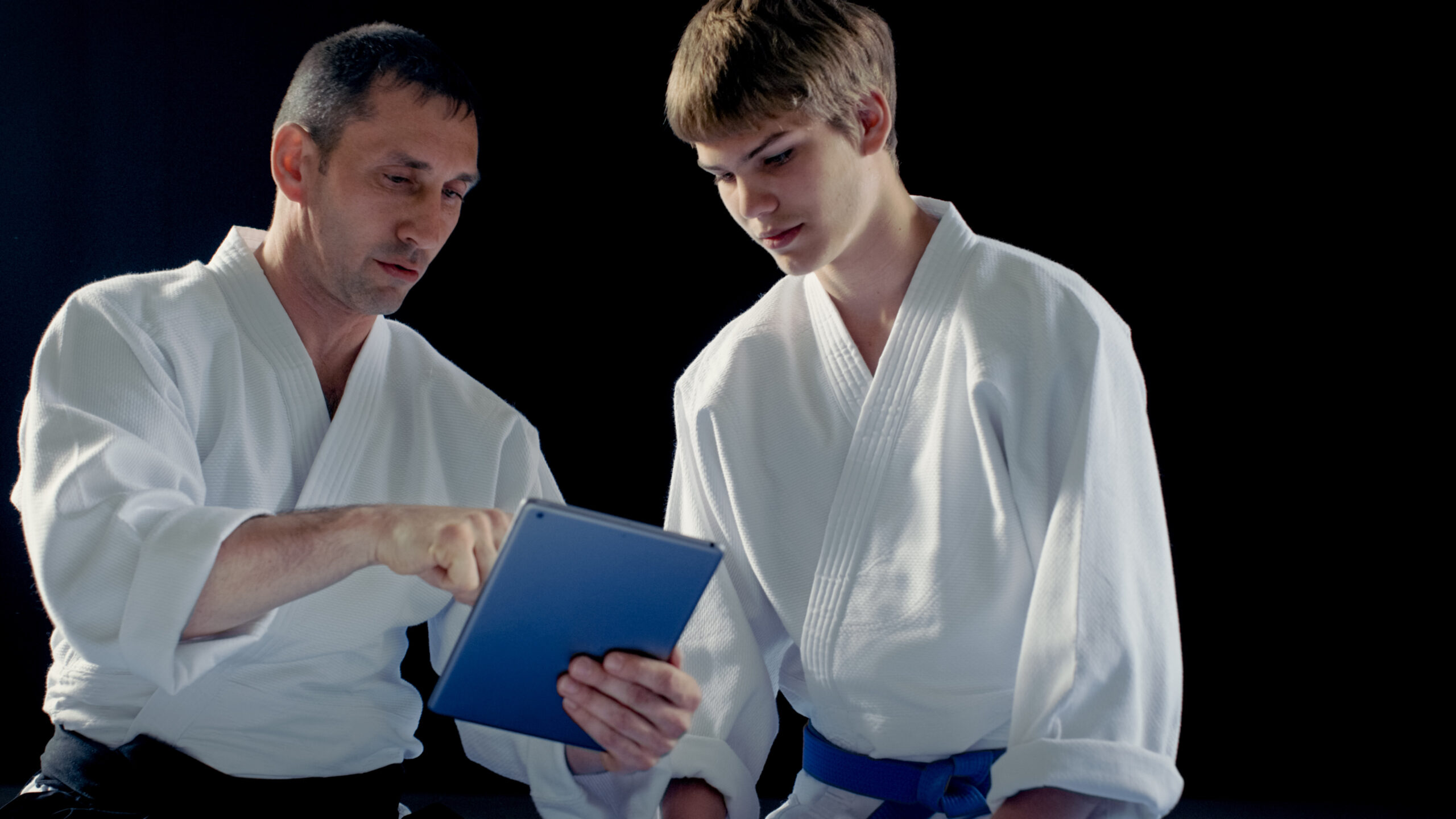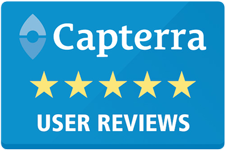5 Martial Arts Social Media Marketing Tips for Schools

Social media has gone from being an important element of your martial arts school’s marketing mix to a non-negotiable, life or death factor in your overall success. This may sound a bit over the top, but if you understand how today’s kids and their parents interact with the world, you will know that people today live on social media. It’s where they get their news and information about what’s happening in their communities. Sites like Facebook, Tik Tok, and Instagram have become our modern-day meeting places—where you go to find out what’s up. If your school doesn’t have a strong presence, you’re going to pay a price.
This article offers five proven best practices and suggestions for getting the most out of social media for your martial arts school. It discusses how to optimize your profiles, connect with students, engage prospects with great content, and manage your reputation. Throughout, we speak to the benefits of leveraging martial arts business software to achieve positive outcomes without expending too much time and energy on tasks that may be unfamiliar to you. The best martial arts management software helps by automating many challenging social media marketing processes.
#1—Nail Your Profiles
Each social media platform has a different emphasis and user experience. Your profiles need to be unique and optimally suited to a given platform’s style. You’re going to need great photos for your Instagram profile, for example. Ideally, you want to provide as much information as possible about your school to help persuade prospective students to try you out. If the information you provide is incomplete or not compelling, you risk losing business to a competitor. (Remember, prospective students not only find out about you on social media, but they will use social to check you out before reaching out to you.)
Facebook is consistently the most popular social network with the best features for small business advertising, so we recommend that you get started by concentrating your social media presence and strategy on Facebook. To get started, here are the basic elements you need to build out your Facebook business page. Even if you created your Facebook page years ago, you might want to go back and add to it since business features have expanded.
- Short Description: You only have 255-characters in the section to describe your school, so explain your style of classes and note your general location here. If it fits in the space, you can also include a promotion (i.e.: Try your first week free!).
- Long Description: This is where you’ll tell prospects how amazing your school is. Talk about your facility, the programs you offer, your community and anything else a prospect should know.
- Hours: Make sure to keep an updated schedule posted here.
- Contact Information: List your physical address, phone number and email address.
- Website: Provide a link to your website if you have one (and you should).
- Business Category: Underneath the name of your business, you’ll see the option to add a business category. Be sure to select Martial Arts.
- Reviews: Ask your students and parents to post reviews about your school. Reviews go a long way towards building trust in you and your school. With software products like Zen Planner Engagement, you can send automated review request emails and SMS to customers after a service or purchase. The tool has customizable templates that enable you to personalize review requests.
- Photos: As they say, a picture is worth a thousand words. Be sure to use clear and interesting images for your cover image, profile picture and other photos you share.
#2—A-B-C: Always Be Connecting with Your Students
After building your profile, you’ll want to work on connecting with prospective and current students. Each time you talk to a prospect and sign them in to your dojo software, tell them to Like your school’s Facebook or follow you on Instagram. Make sure all of your students Like your pages, too, by posting reminders in your newsletters, email communications and website. You can also add social media icons to any of your printed materials. Continually asking to connect may feel redundant, but it’s not.
To make sure your Facebook followers see your posts, tell them to set your posts to “see first” in their Facebook news feed. They can do that by hovering over the “Like” button on your cover image. Hovering will allow them to select either “see first” or see as “default.” Instagram has “Favorites.”
#3—Build Your Following with Great Content
In recent studies, nearly 80% of people said that the things a business posts on social media influences what they buy. That means your social content can drive prospects into your school or away to a different business.
There’s one very important rule when it comes to your social media posts: don’t let every post be about you or your business. If you just share information targeted at selling student agreements to prospective students, your followers will eventually tune your posts out or even unfollow you. Instead, post helpful and engaging content to keep your followers interested. Share blog posts you’ve written, as well as links to articles that will enhance your current and prospective student’s training. Post photos and videos of your students (and make sure you have permission), and offer training tips, humor and inspiration.
If you want to make sure you’re keeping your posts balanced, hold self-promotion to about 50% of your content. Self-promotional posts are direct links to your website, special offers, school announcements and other lead generating content.
Finally, it’s important to mention that quality content is more important than the quantity of content you post. If you make sure all your posts have value, your followers will remain interested. But if your posts veer off towards filler content, you’ll be at risk of losing your audience.
Being successful content on social media is an area of marketing where martial arts school software can make a big difference. Tools like Zen Planner Engagement offer features like content scheduling, which enables you to arrange posts in advance for multiple social media platforms. A visual calendar gives you a view of the content arranged in a predefined schedule. The software can also help with content creation, such as with a built-in design tool or integration with popular programs like Canva. Posting can be automated, so you can “set and forget” your content posts.
Zen Planner Engagement offers collaboration features. You can assign different roles to team members and work together on content creation. A content library lets you store, organize, and reuse media assets like pictures and videos for easy access. Zen Planner also provides social media analytics. Use the tool to track performance metrics such as likes, shares, comments, and engagement rates.
#4—Encourage Engagement
Although we’ve mostly talked about lead generation, the value in social media doesn’t end once a student signs an agreement. Social media also helps with student retention. Through pages and private groups, you can strengthen relationships with your students and provide a place for them to interact with one another outside of your school.
To maximize the retention value in social media, try to generate follower participation and engagement. When you post content, ask for feedback and encourage a dialogue. Ask your followers open-ended questions about things they are interested in and tell them to tag themselves if they are in any photos your post. Do what it takes to get your followers talking and posting on your pages.
But be sure to regularly monitor your accounts and reply to comments and questions as they are posted or sent through messenger. Nothing will kill engagement quicker than your lack of interest in what your followers have to say. Automated tools like Zen Planner can help with automated monitoring and reporting.
You can also create a private Facebook group for your students. With groups, your posts will automatically appear in group members’ News Feeds. This ensures all group members stay up-to-date on events, and it helps members feel safe (from a privacy standpoint) to share information and updates with each other. But remember, since groups are private, they aren’t a useful lead generation tool.
#5—Manage Your Online Reputation
Social media is home to much of your school’s public reputation, for better or worse. It pays to be aware of your online reputation and be ready to respond if it trends toward “worse.” Again, automated tooling can make a big difference in results, as well as how much time this process will take. For example, with online review monitoring, you can track and aggregate reviews from multiple review platforms, e.g., Google, Yelp, Facebook, etc. Zen Planner Engagement has a centralized dashboard where you can see and manage all reviews.
The toolset lets you partially automate review response. You can respond to reviews directly, using pre-bult templates and suggestions. For example, if a reviewer complains about parking, you can set up a template that replies with information about parking that the reviewer may not have known about.
Track it all with automated reputation reports that tell you about review trends and your overall reputation score. You can analyze feedback to identify areas where your school could improve. On a related front, you can use the toolset to create surveys and send them out to collect customer feedback.
The Benefits of an Automated Approach
Managing your social media presence can be a big job. Automation helps lighten the load by making repetitive tasks like review requests automatic. With content automation, you can maintain a consistent presence with a steady stream of content and resulting social engagement. You can analyze social media results and online reputation to learn how to make your business work better and grow.
To learn more about how Zen Planner can help you make an impact on social media and leverage today’s online platforms for growth, visit here.

I’m Coach Kelli, a devoted CrossFit gym owner with 15 years of experience managing my facility, along with owning yoga studios and wellness centers. Beyond the fitness world, I have a passion for cooking, cherish moments with my children and family, and find joy in spending time outside. Having experienced the highs and lows, I’m dedicated to leveraging my expertise to help you grow and succeed on your fitness journey.

I’m Coach Kelli, a devoted CrossFit gym owner with 15 years of experience managing my facility, along with owning yoga studios and wellness centers. Beyond the fitness world, I have a passion for cooking, cherish moments with my children and family, and find joy in spending time outside. Having experienced the highs and lows, I’m dedicated to leveraging my expertise to help you grow and succeed on your fitness journey.






